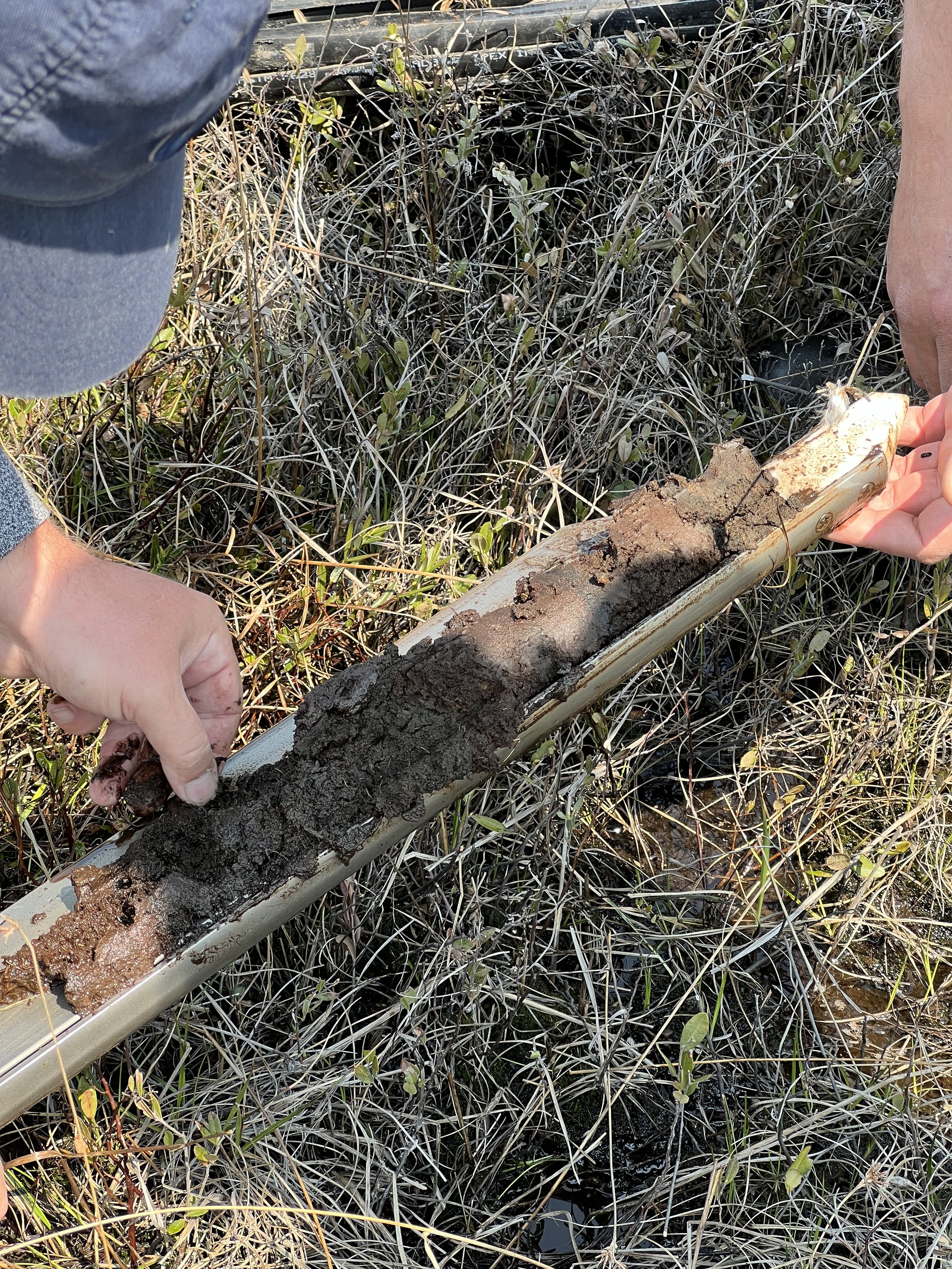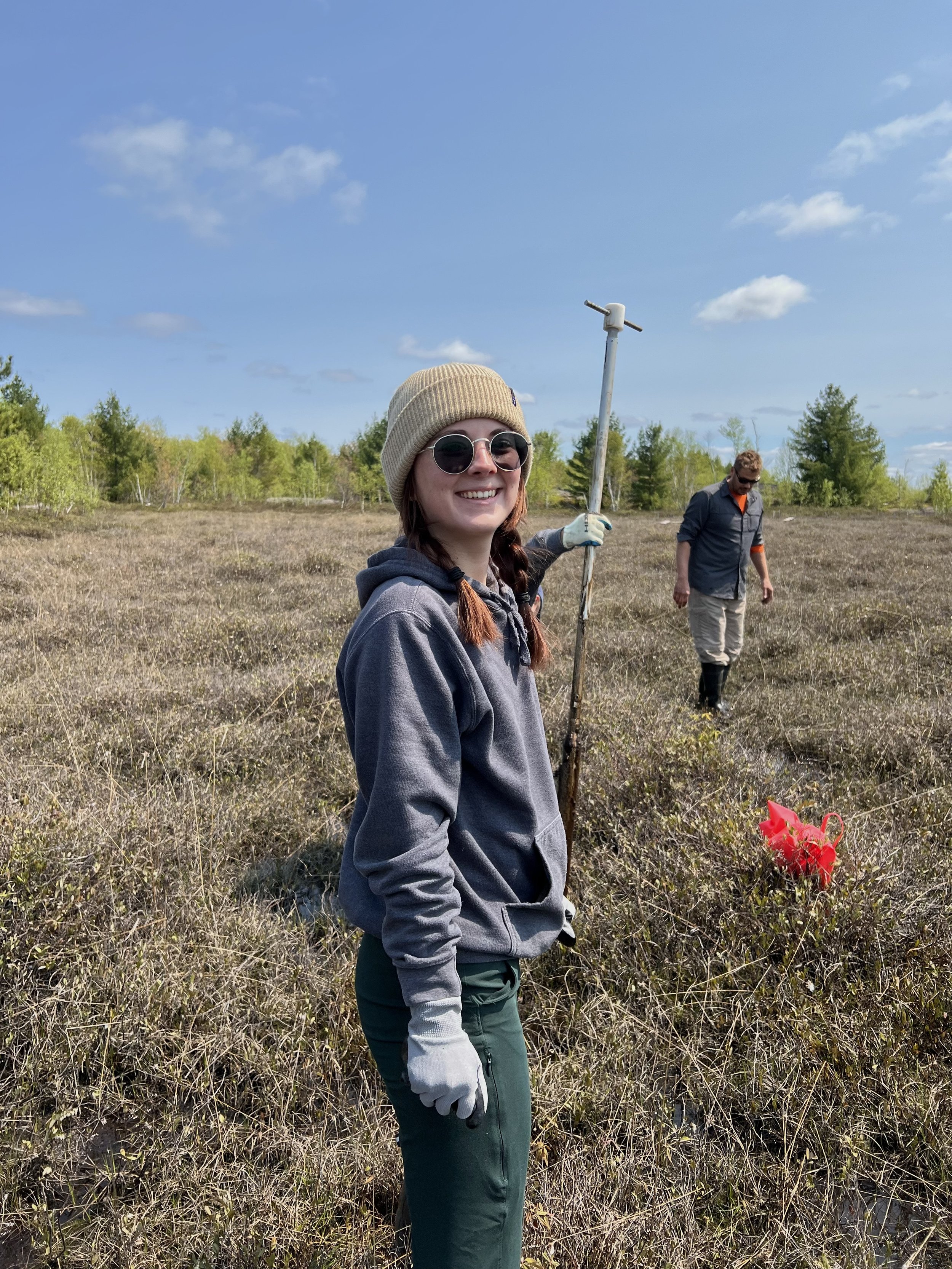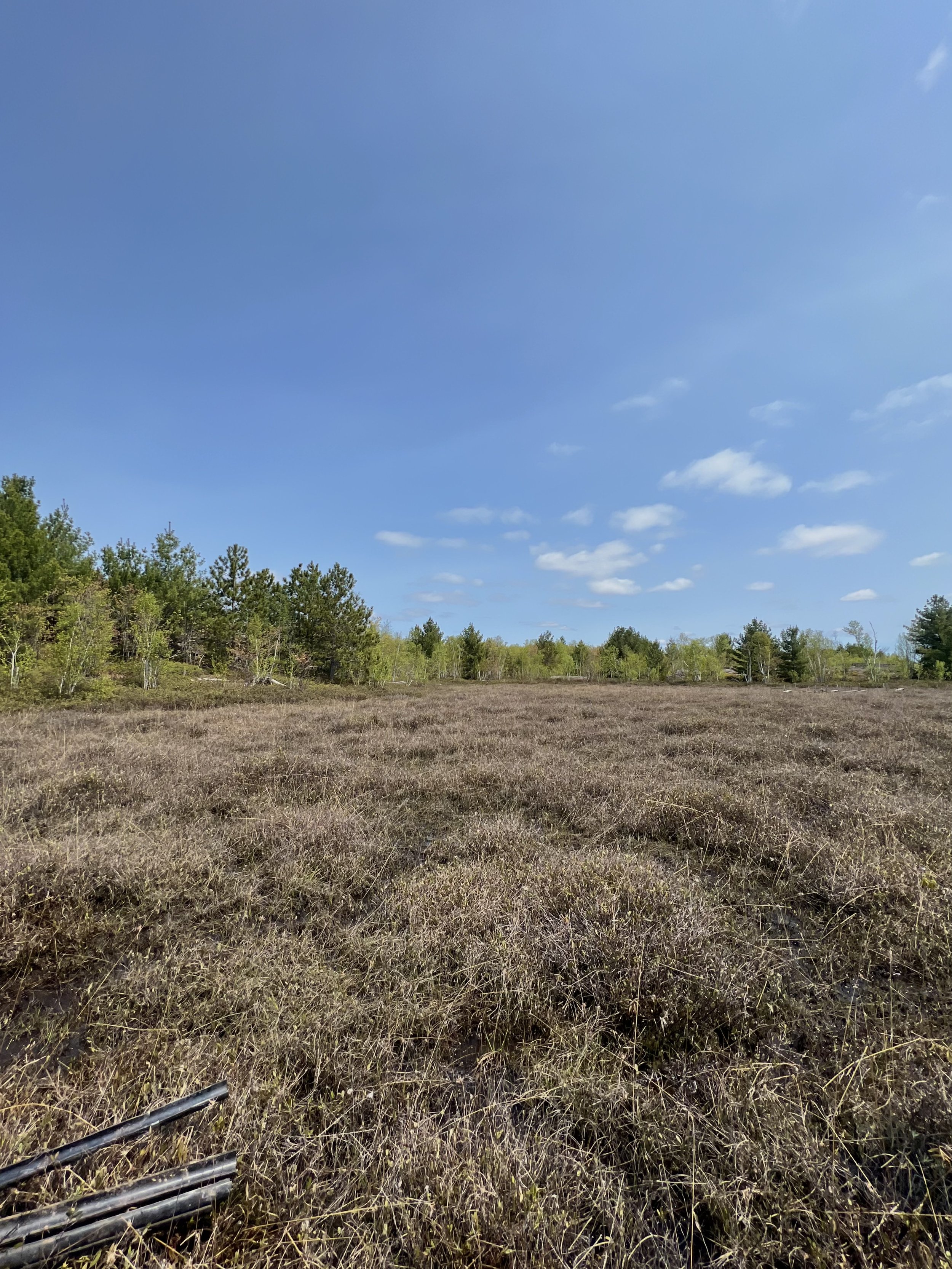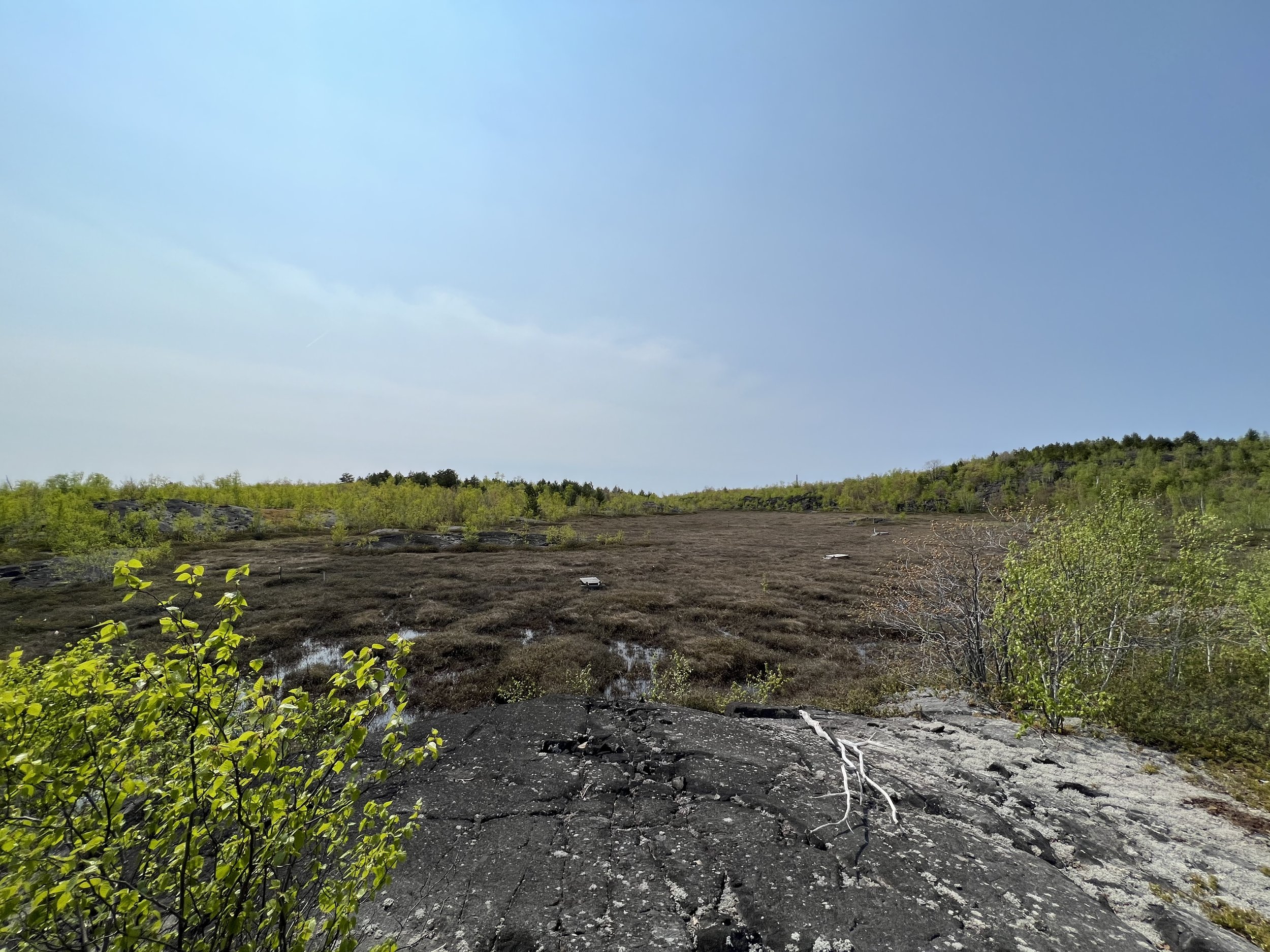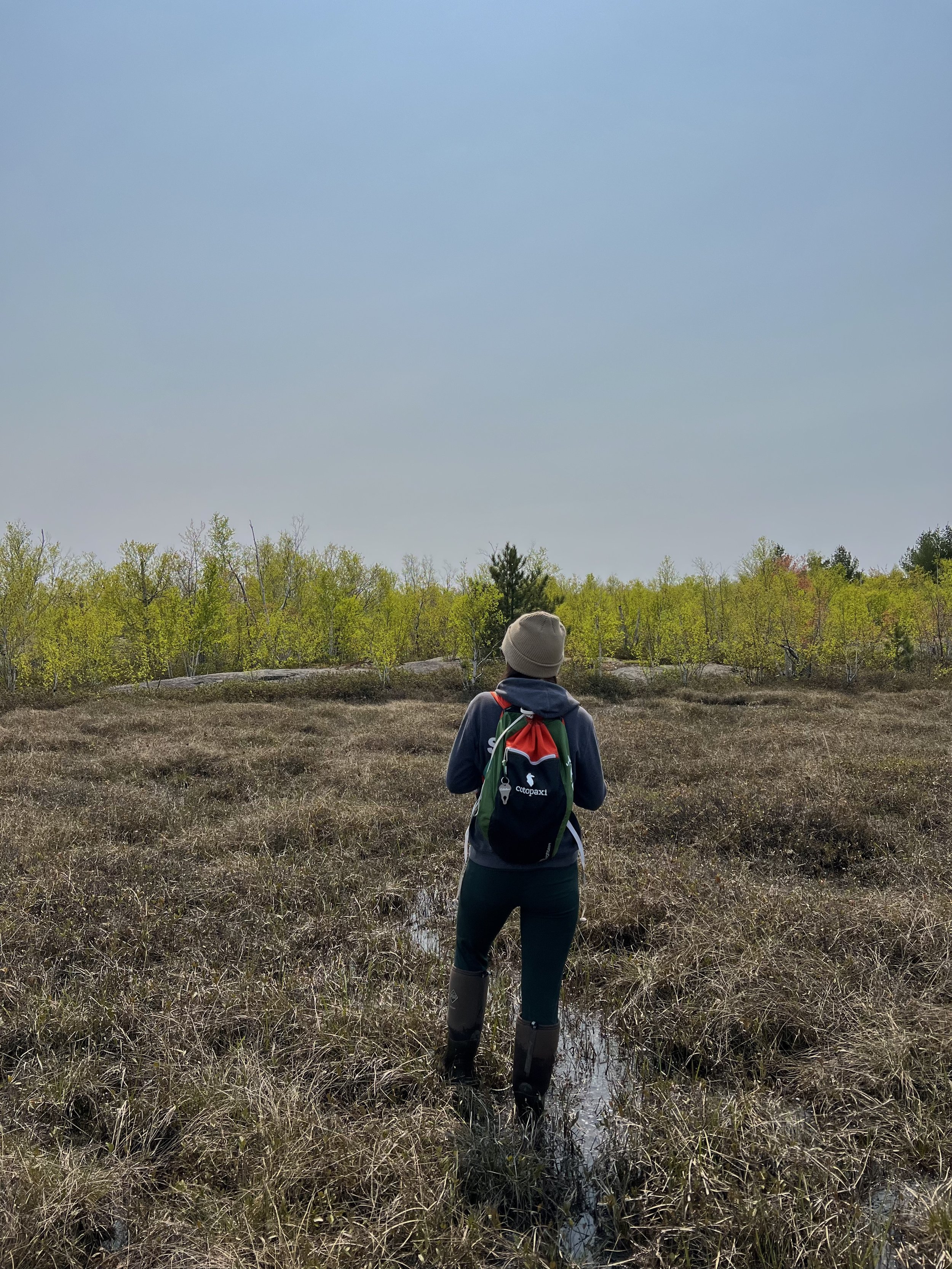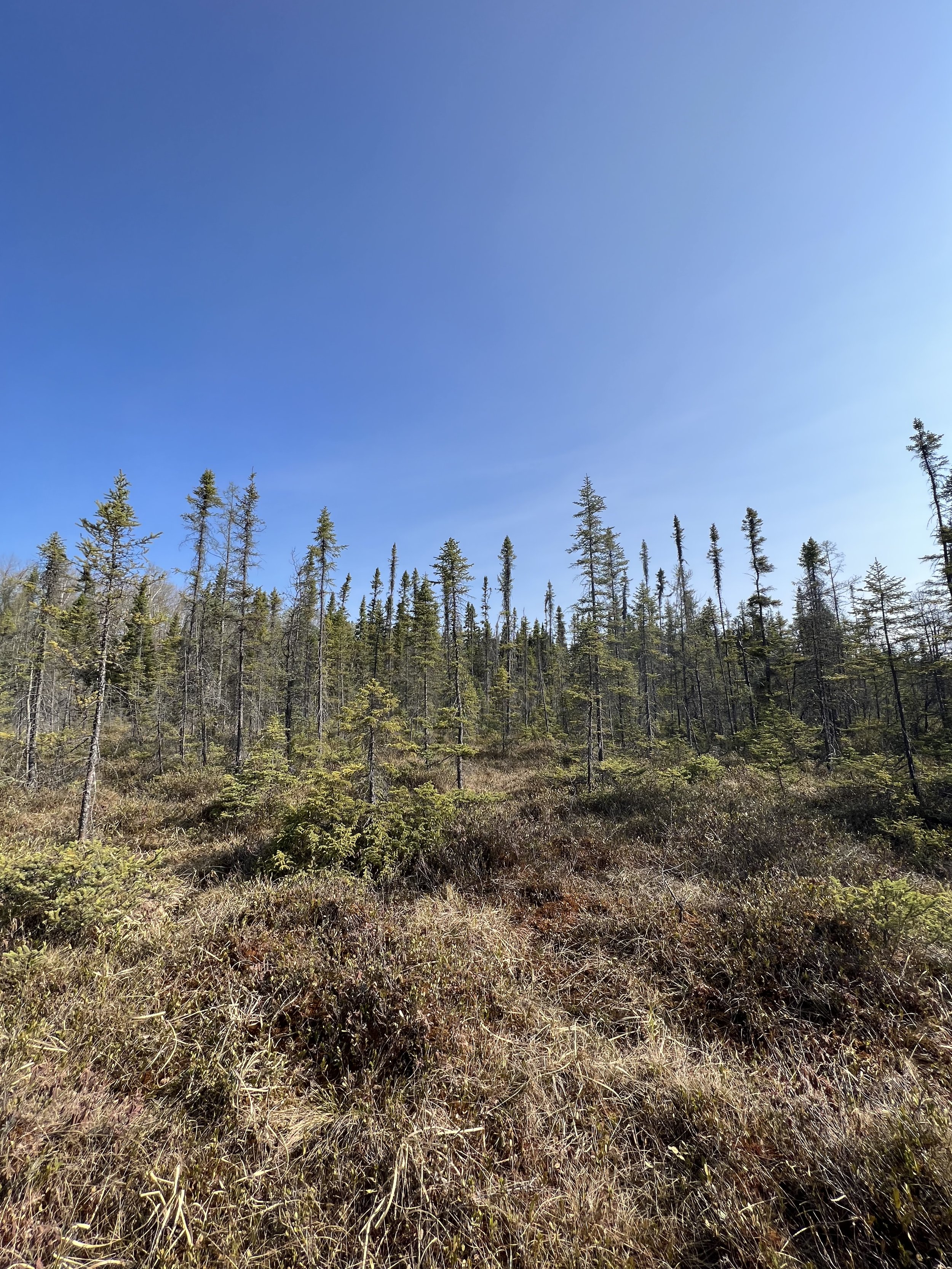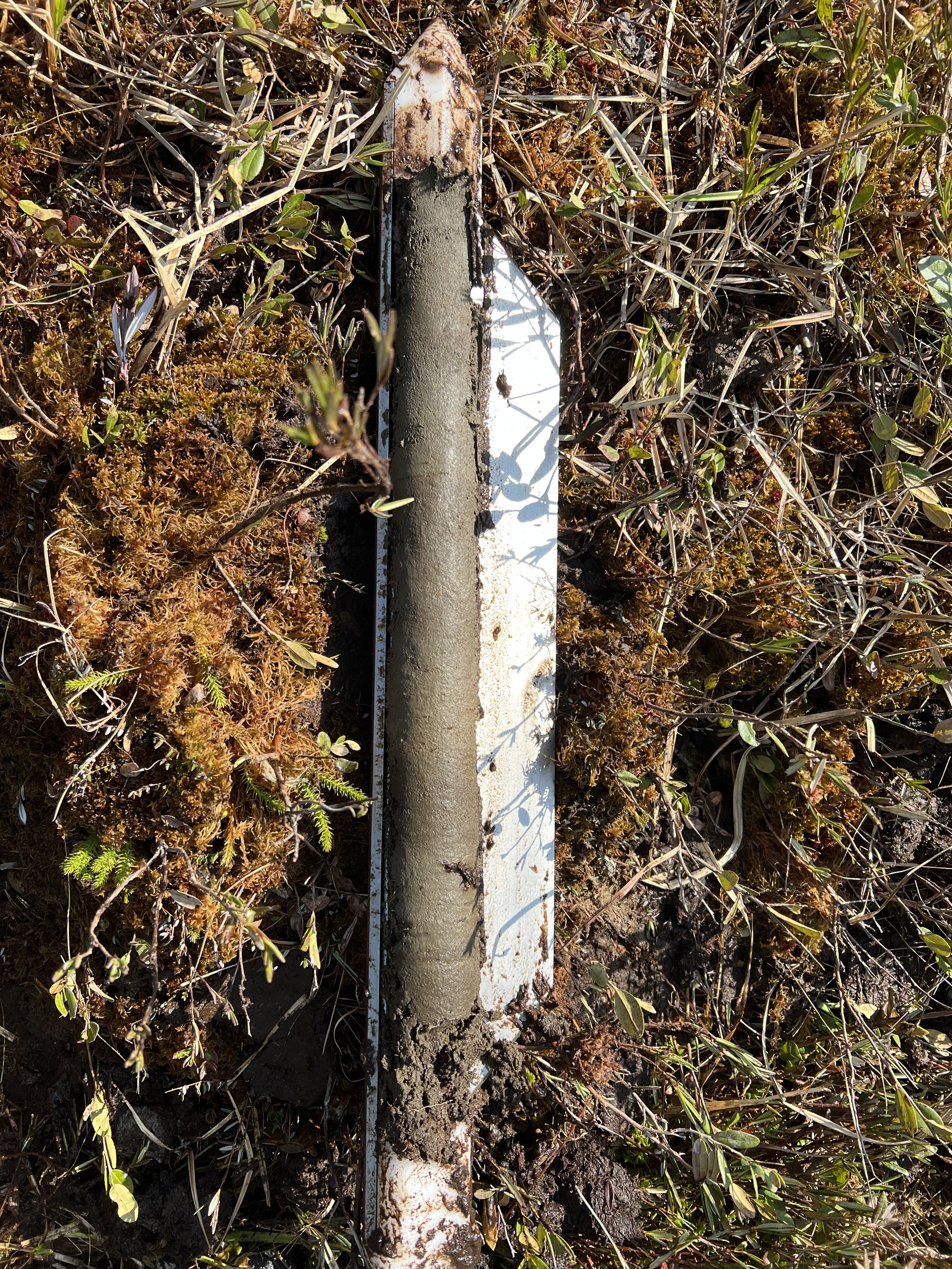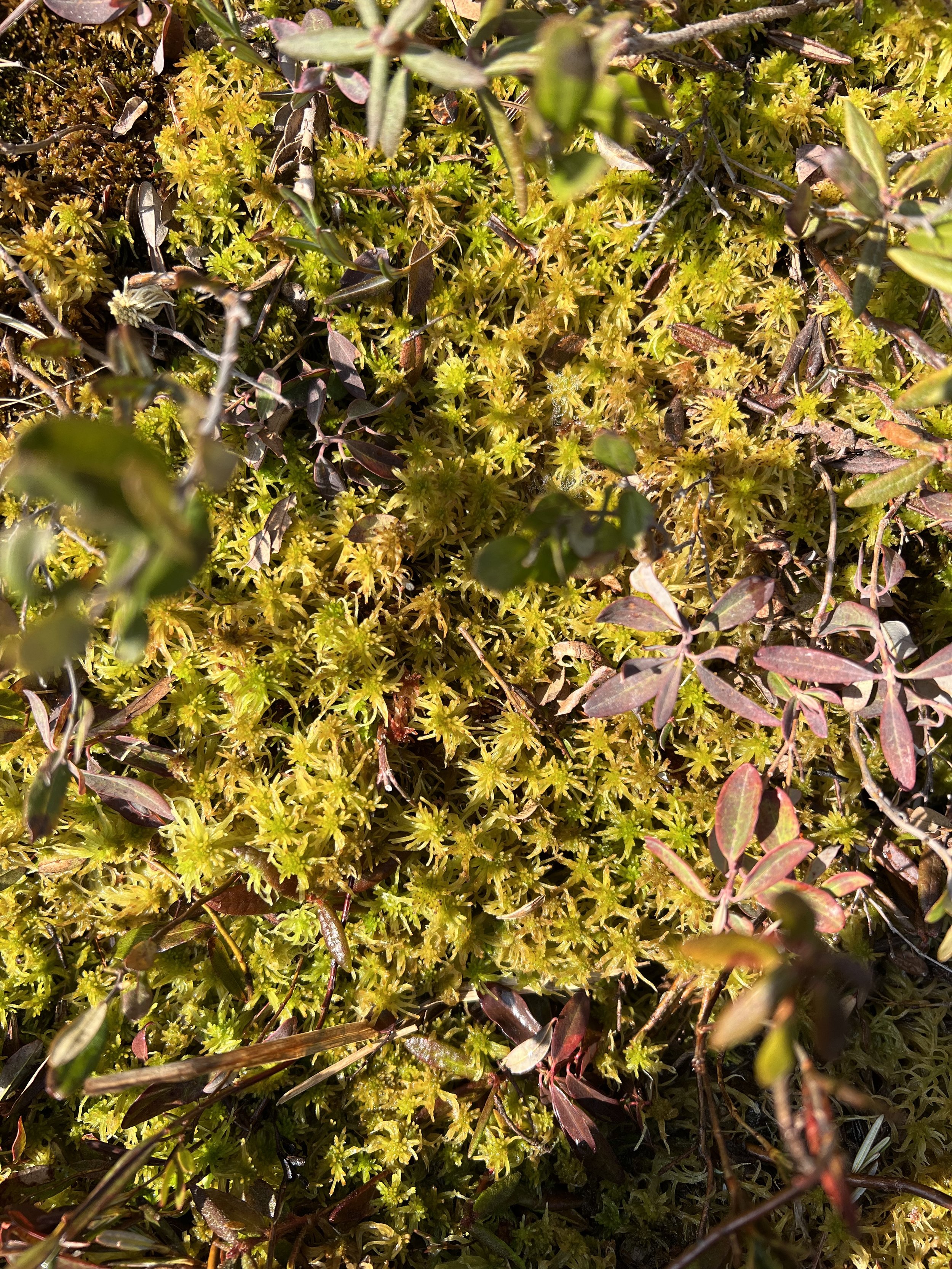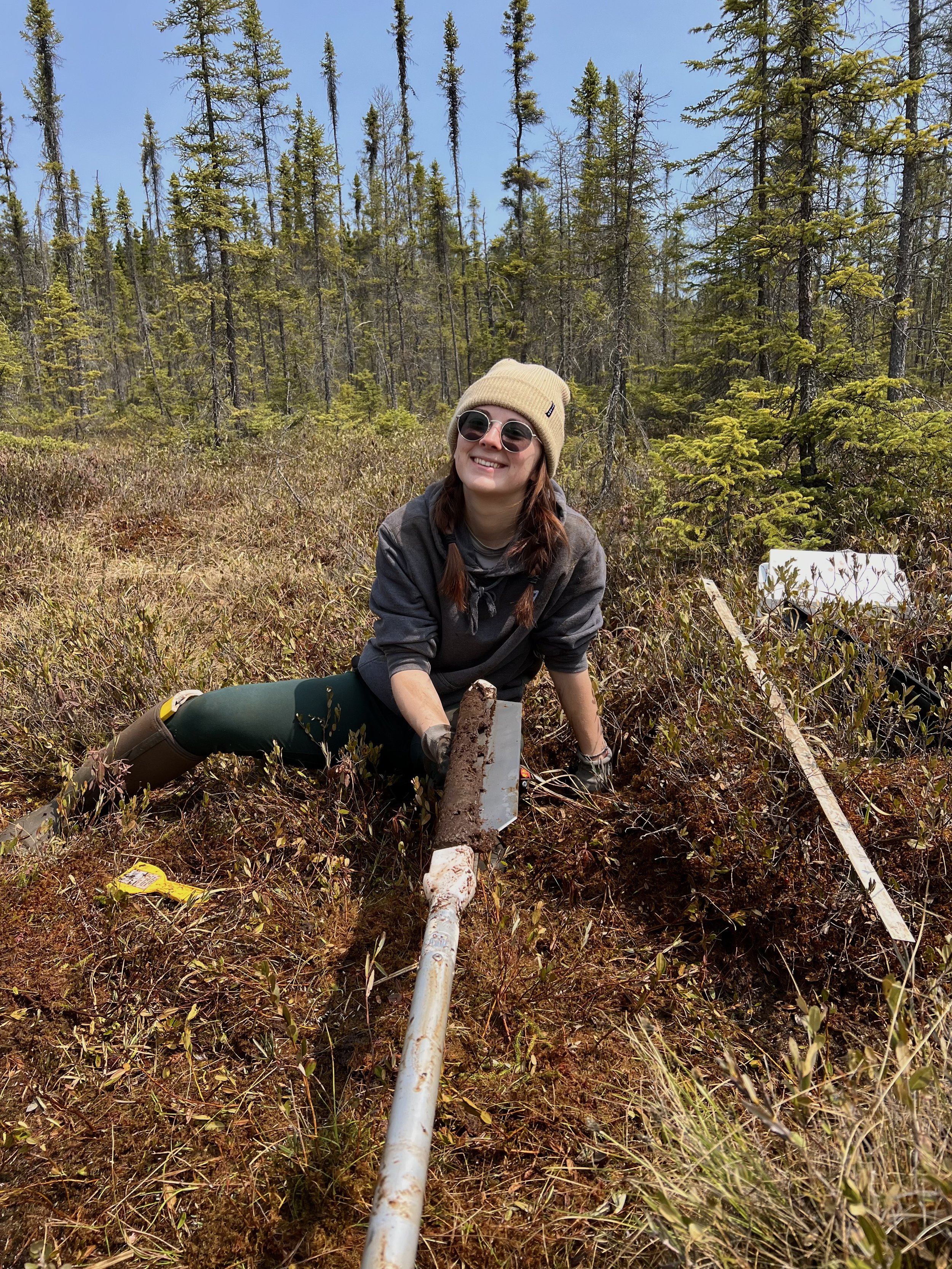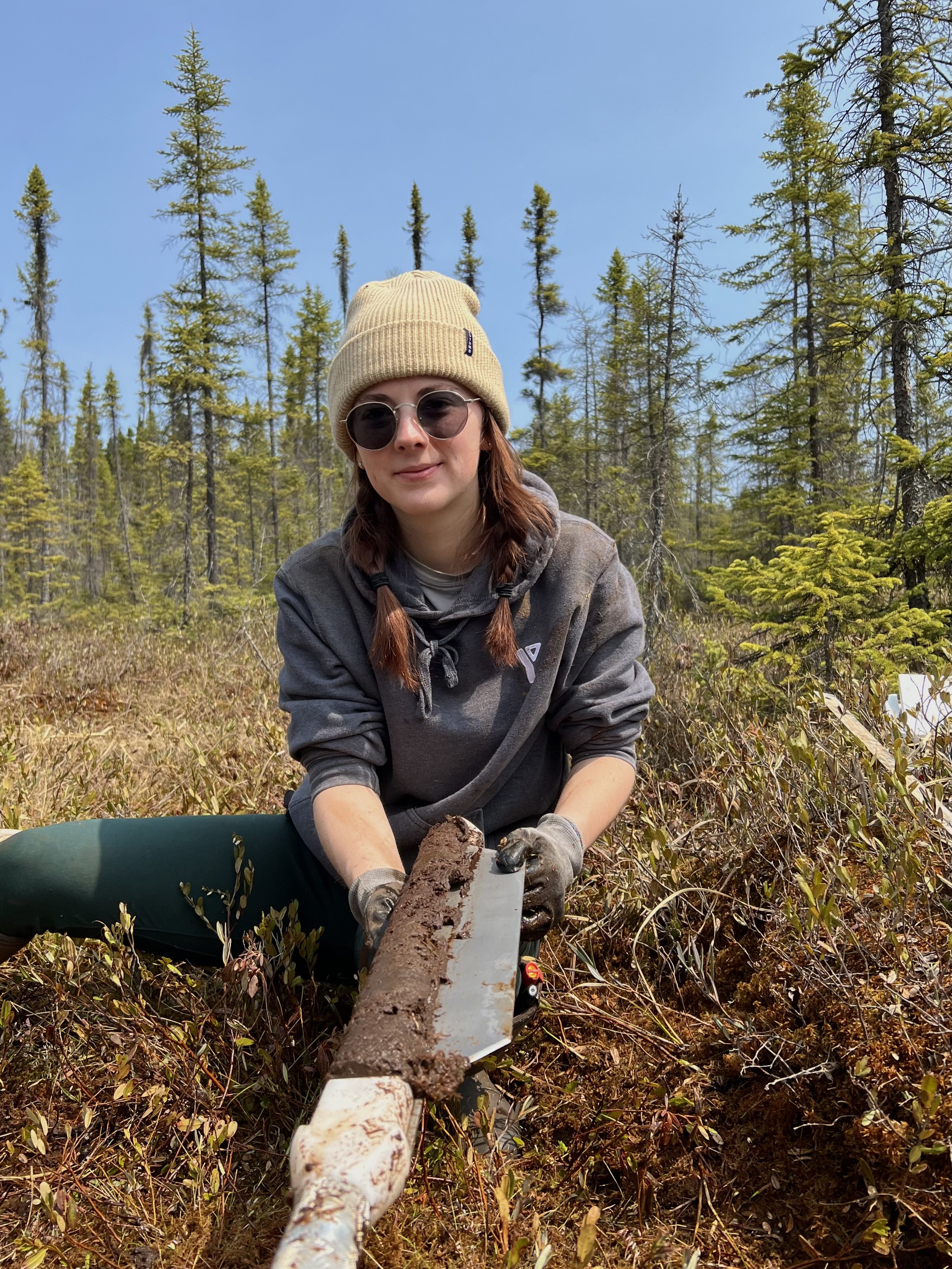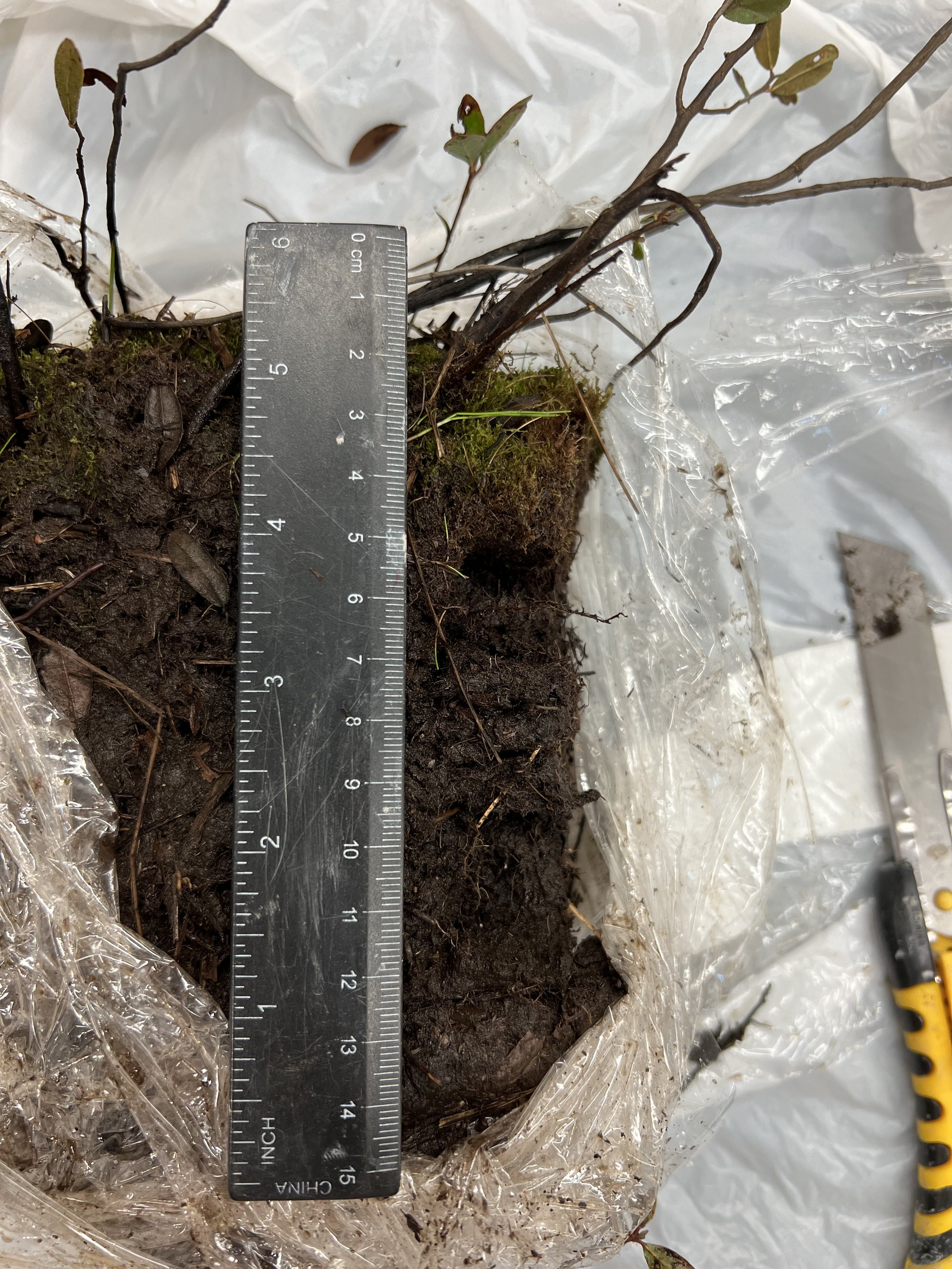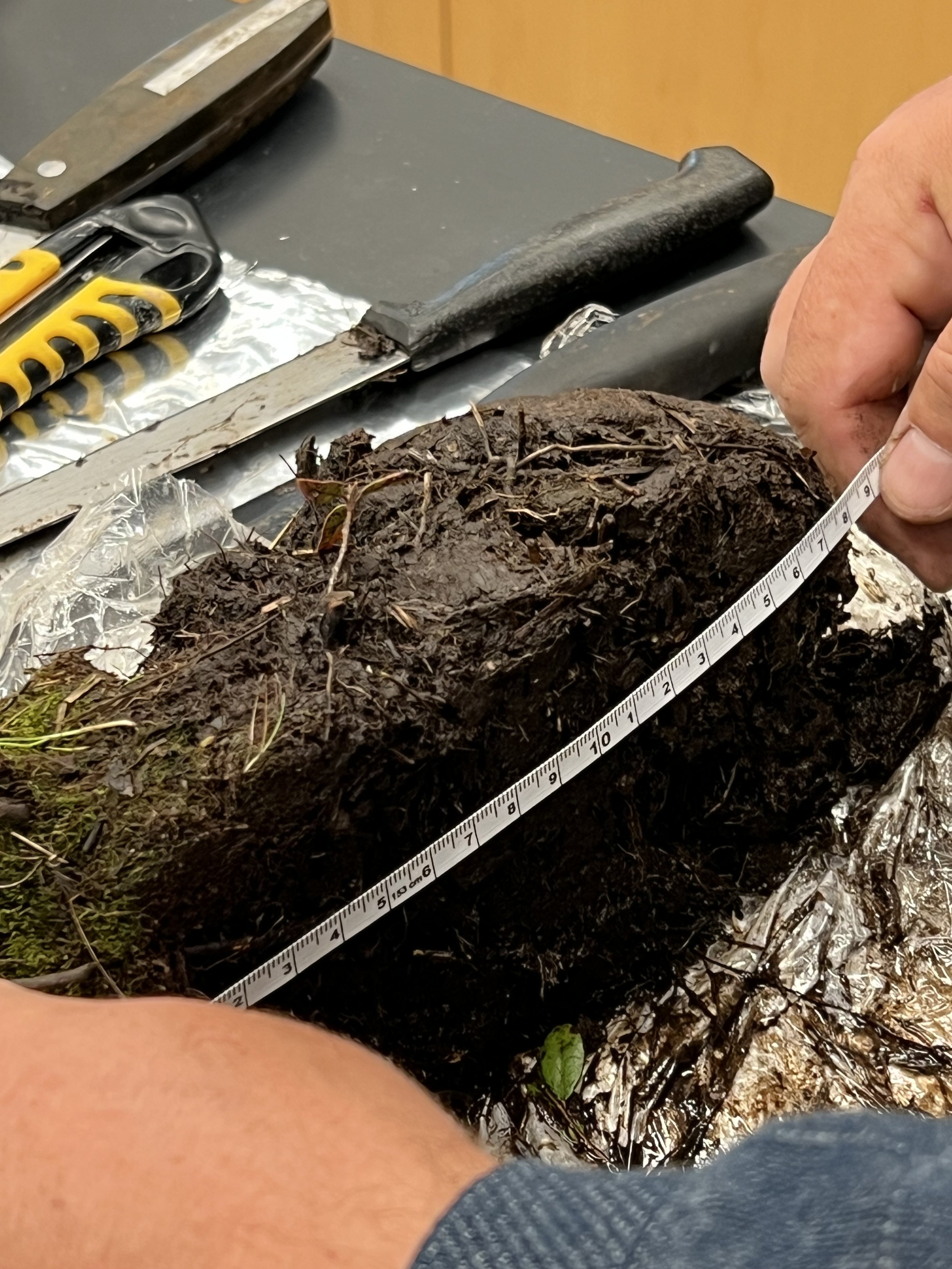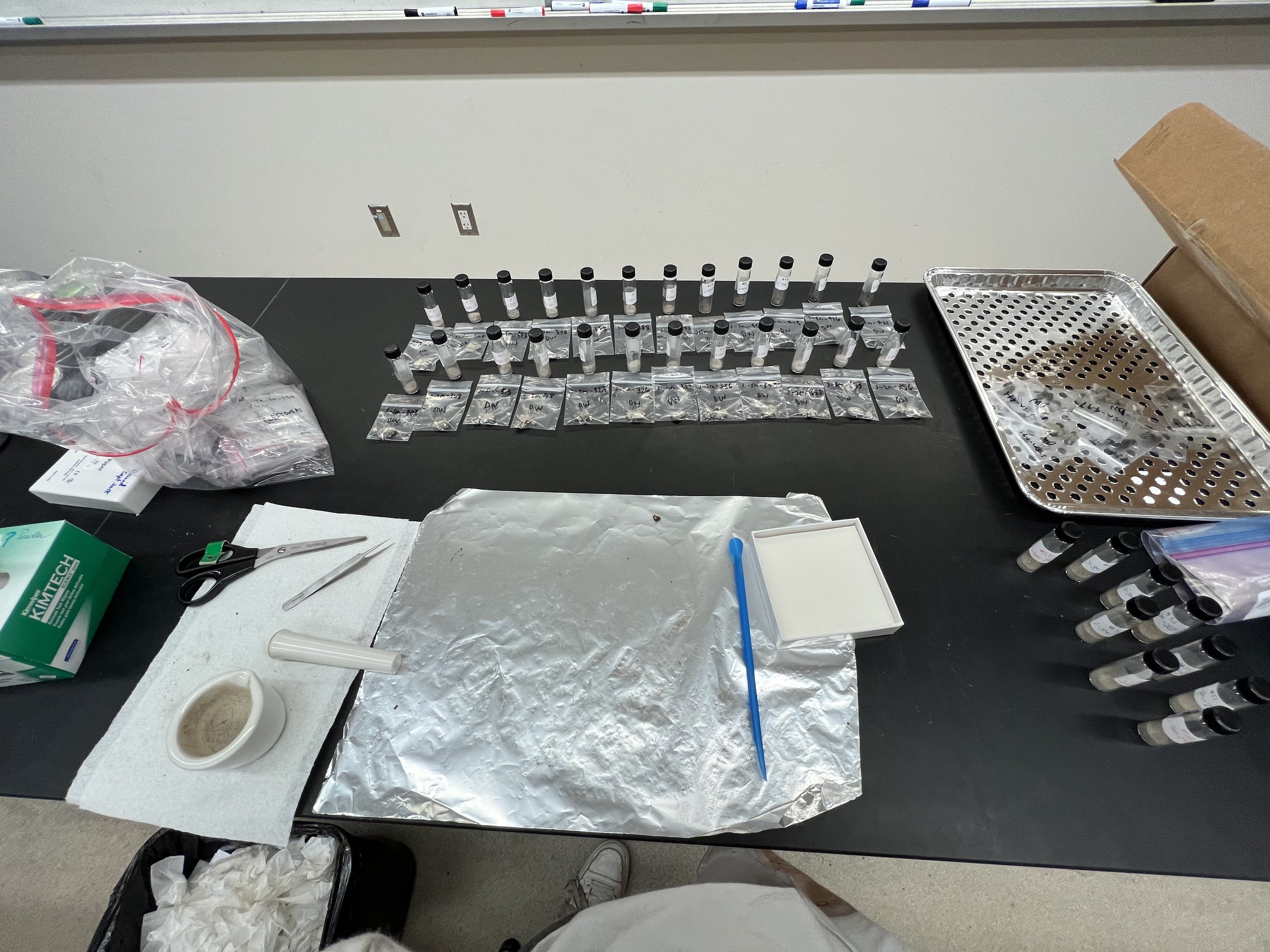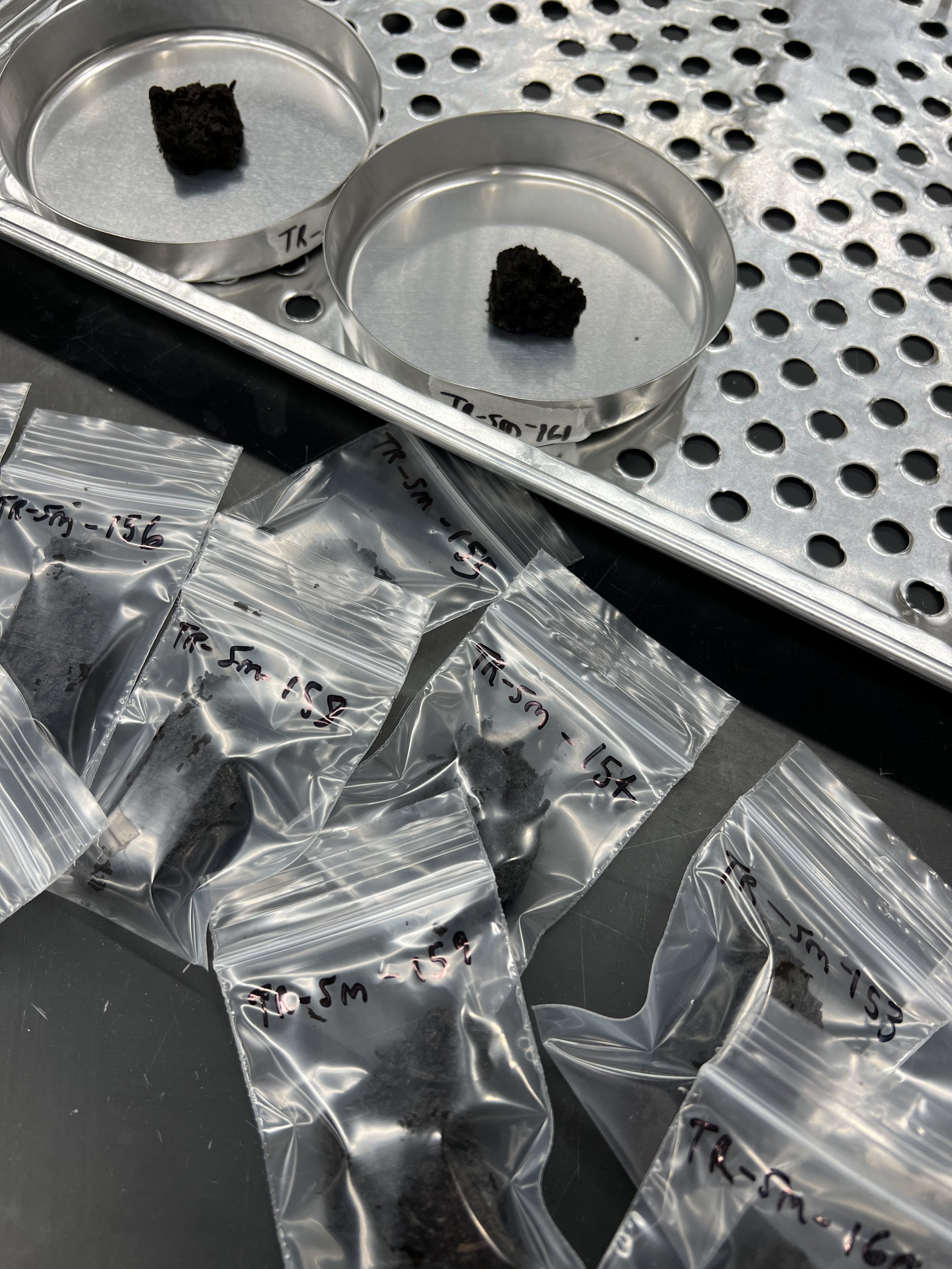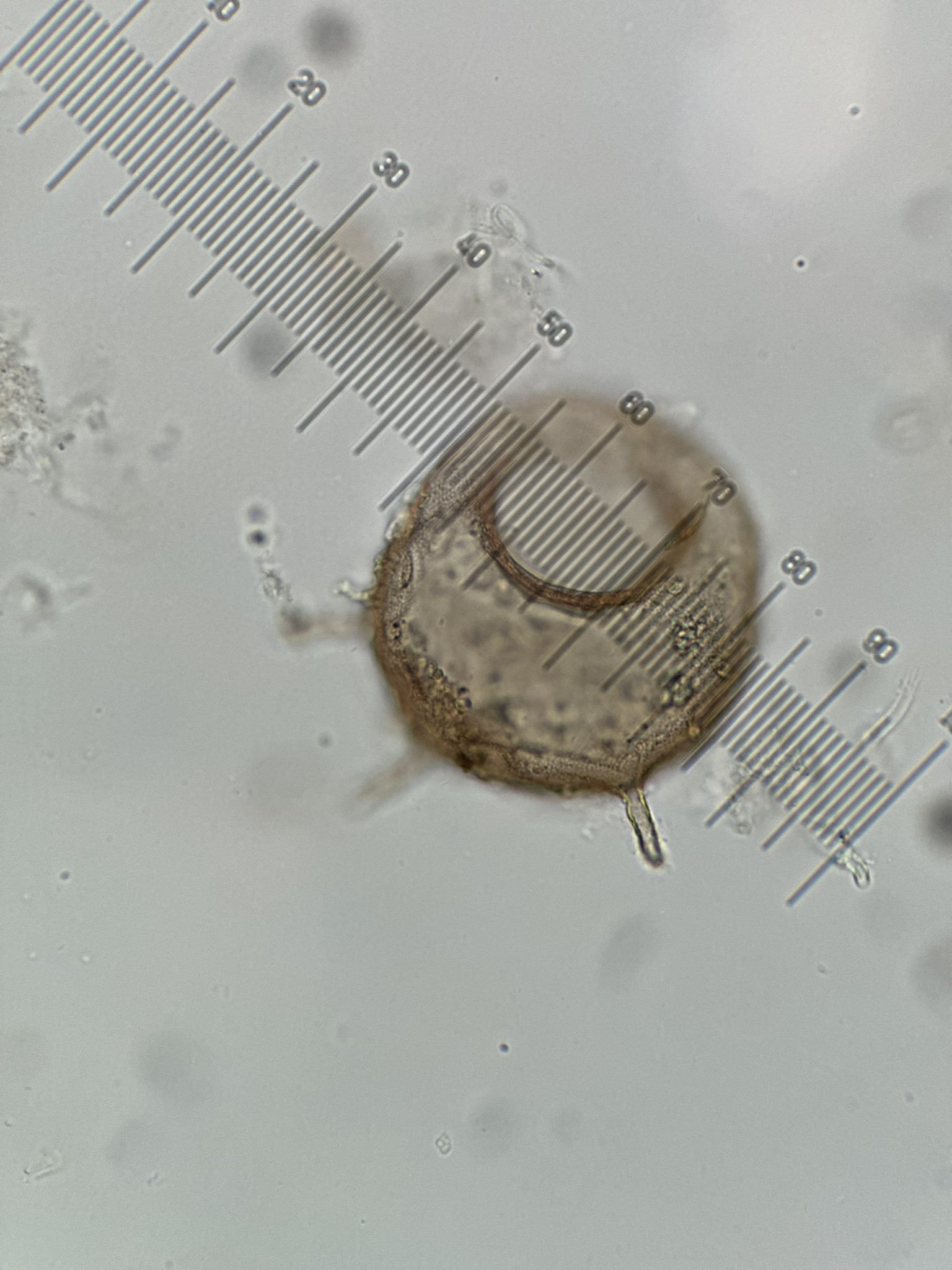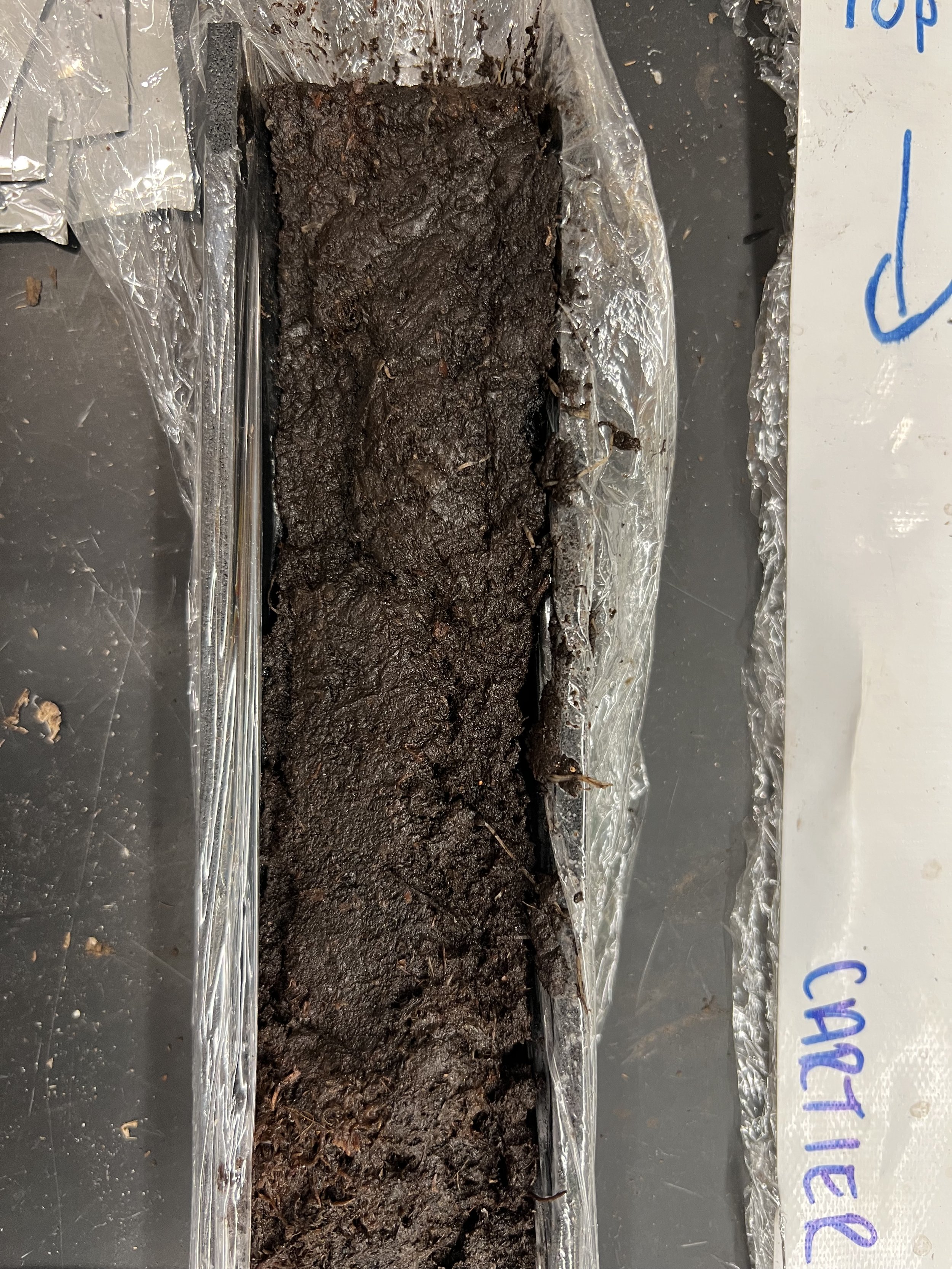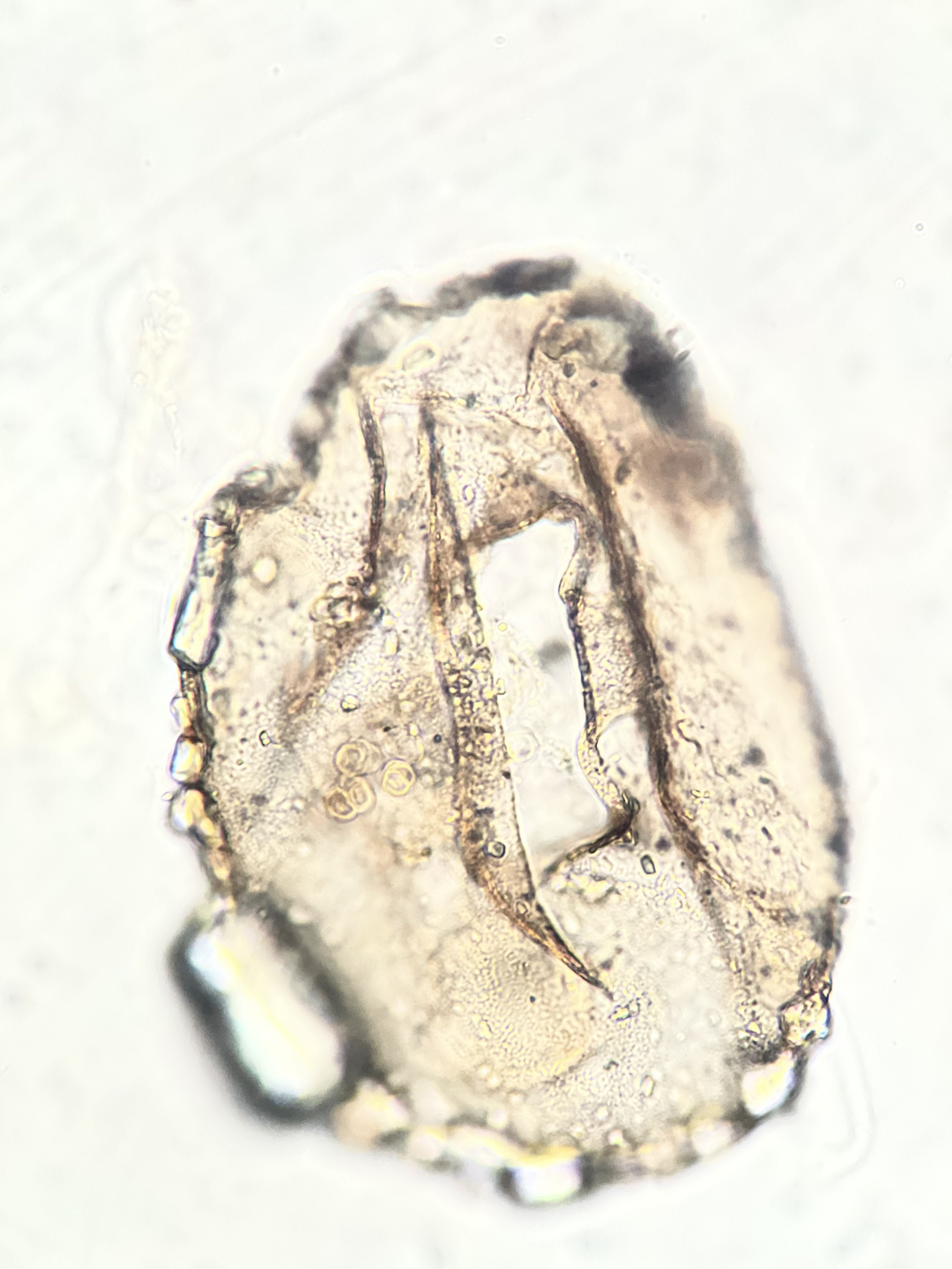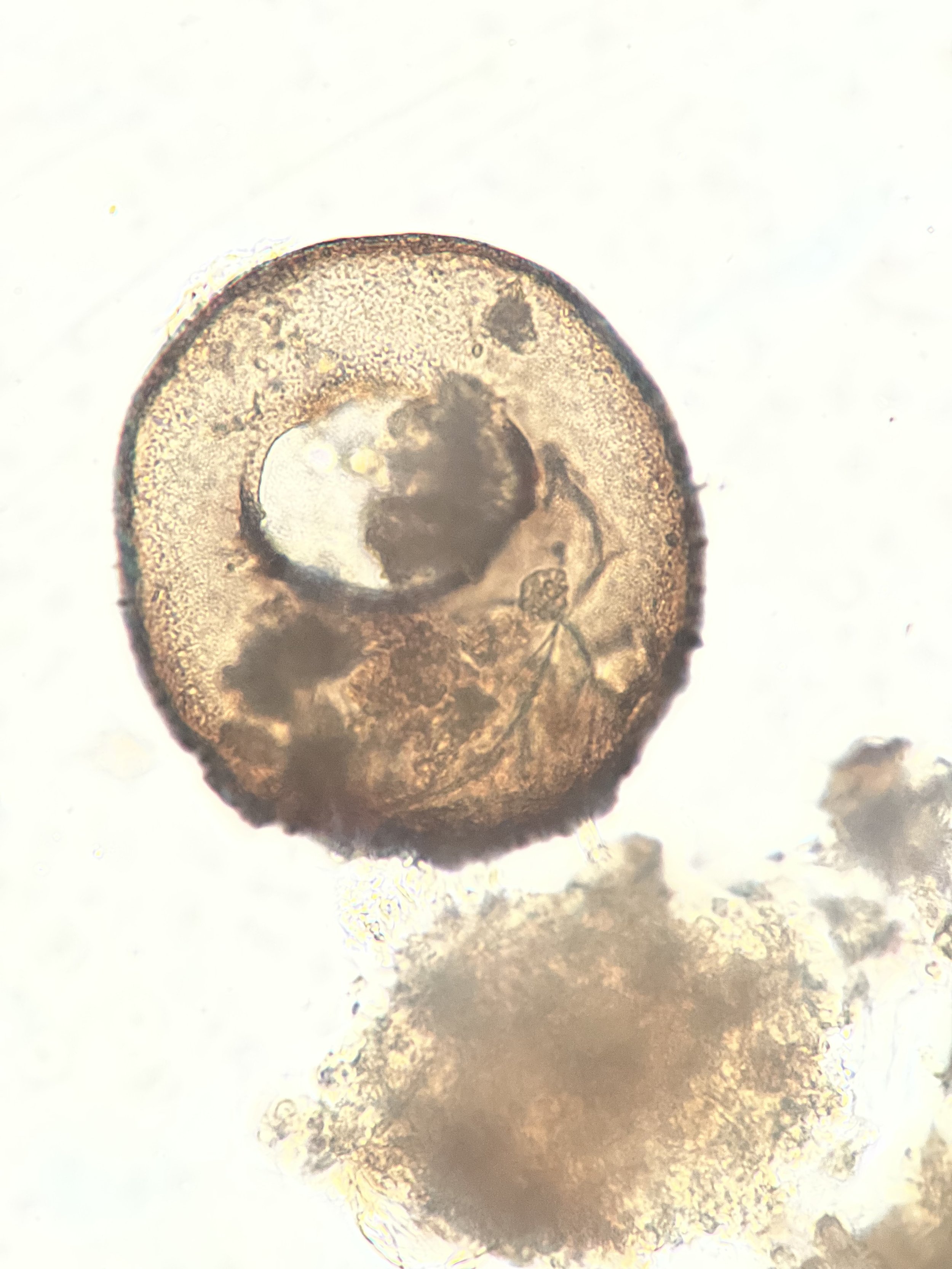Historical ecology and soil carbon dynamics in peatlands impacted by industrial smelting contamination (Sudbury, ON)
MSc-F, Lakehead University, 2023-2025
Peatlands, cover 3% of the Earth’s land surface, but store a significant portion of global carbon, and play vital roles in the global climate system. The peatlands of Sudbury, Ontario, impacted by 19th and 20th-century smelting operations, face challenges from acid sulphate and metal contamination. Despite reduced industrial pollution over the last 50 years, plant communities, soil chemistry and microbiomes remain altered. This study aims to understand how variations in pollutants, hydrology, and plant communities affect carbon accumulation. Utilizing palaeoecological tools, I will reconstruct the changes to plant and microbial communities and hydrology in Sudbury’s peatlands. I will analyze plant fossils, pollen, and testate amoebae to understand changes over time and connect pollutant concentrations to the found palaeoecology and hydrology using geochemical analyses. Pollutants near smelters can impede vegetation growth and alter microbial composition and moisture availability, impacting carbon accumulation. Previous studies suggest a potential adaptation of vegetation to pollution, impacting carbon sequestration. Moisture availability significantly regulates carbon accumulation, with dry conditions associated with reduced storage. This research contributes to understanding the complex relationships surrounding past, present, and future carbon sequestration in smelting-impacted peatlands.
Research project aims to restore peatland carbon sink in Sudbury, Ont; https://www.cbc.ca/news/canada/sudbury/peatland-restoration-sudbury-1.7235846
